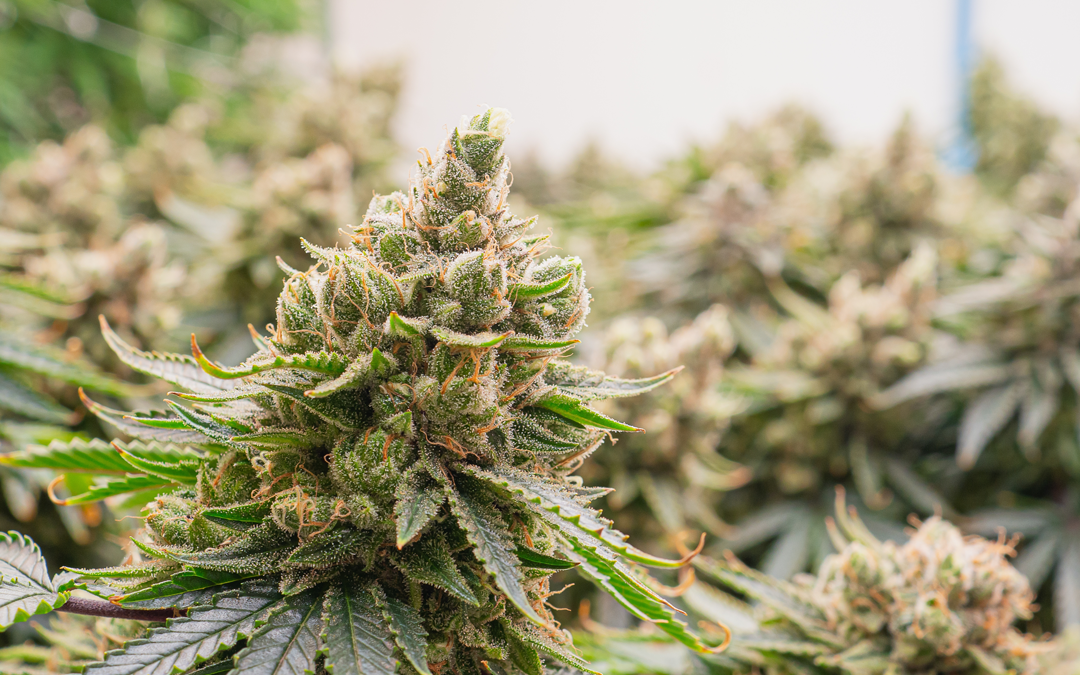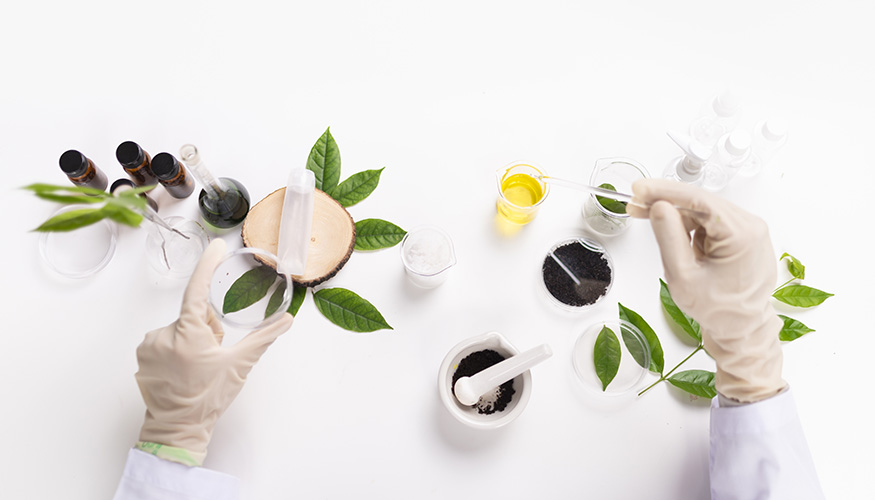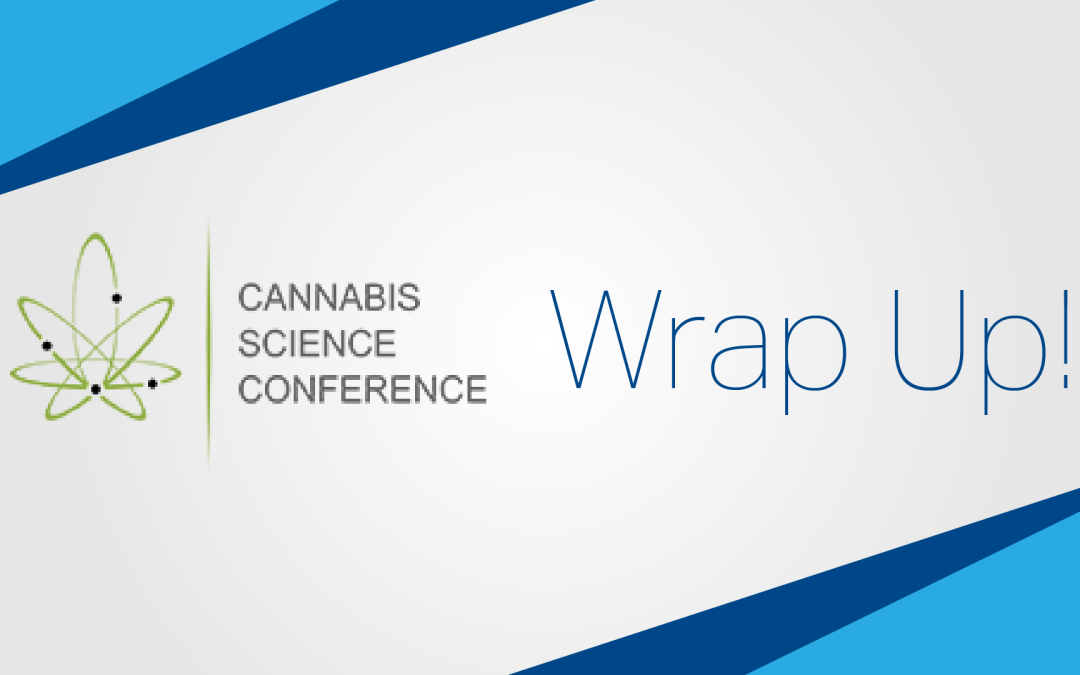Hemp, CBD, Cannabis: What’s the Difference?
In the U.S., the passage of the Agricultural Improvement Act of 2018 (the Farm Bill) and subsequent 2021 USDA Final Rule on Domestic Hemp Production caused a lot of confusion, as Charlotte Peyton, independent consultant with EAS Consulting Group, a Certified Group company, explained in this “Cannabis Industry Journal” article.
Just some of the questions raised include, “What’s legal and what’s prohibited in the U.S.?”, and “What’s the difference between hemp and CBD or cannabis?”.
Let’s break down some basic terminology and federal requirements pertaining to the use of hemp and CBD in manufacturing of consumables and cosmetics. Consult federal and state laws for specific requirements concerning your products – and remember, this blog is not intended to provide legal advice.
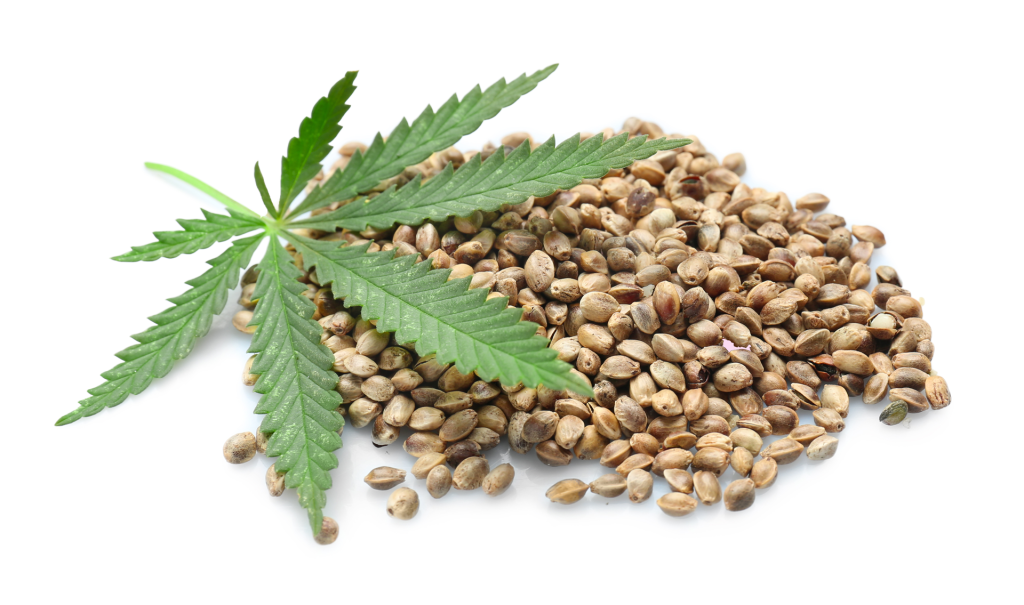
Hemp, CBD, Cannabis: What’s the Difference?
Hemp and cannabis are the same plant, Cannabis sativa, and only differ in their chemistry.
Cannabis is a complex plant with more than 400 chemical constituents of which more than 100 are cannabinoid compounds, such as CBD and THC, primarily found in the flowering top.
THC stands for “tetrahydrocannabinol”, a cannabinoid compound that has psychotropic effects. Some cannabinoids have opposing effects on the human body.
THC Levels Affect the Legality of Cannabis Products
Any part of the Cannabis sativa L. plant is federally designated as cannabis regardless of its THC level. It is the THC level that causes much of the confusion with regard to which cannabis products are lawful.
In 2018, the U.S. Congress passed and signed into law the Agriculture Improvement Act, commonly known as the Farm Bill, which removed hemp from the federal Controlled Substances Act. This effectively legalized CBD if it comes from hemp.

Hemp Cannot Have Delta-9 THC Content Greater Than 0.3%
Hemp is defined as cannabis with delta-9 THC content not more than 0.3% on a dry weight basis. It can include…
- Sterilized cannabis seed
- Substances derived from those seeds
- Mature cannabis stalks
- Fiber produced from those stalks
Hemp seeds can pick up miniscule amounts of THC and CBD from contact with other plant parts, but per FDA, if this occurs the amounts are negligible and not of concern.
What is the Definition of Marijuana?
Cannabis, including all derivatives, extracts, cannabinoids, isomers, and salts with THC content above 0.3%, is considered marijuana, a Class I controlled substance not covered in the 2018 Farm Bill. H.R. 610 was introduced on Jan 27, 2023, which, if passed, would reschedule marijuana to Schedule III.
Adding to the confusion, many states and countries refer to marijuana and hemp as cannabis, so it is important to ensure when seeking guidance for the manufacture and sale of hemp raw ingredients and hemp-containing products, that information used for reference pertains to U.S. law.
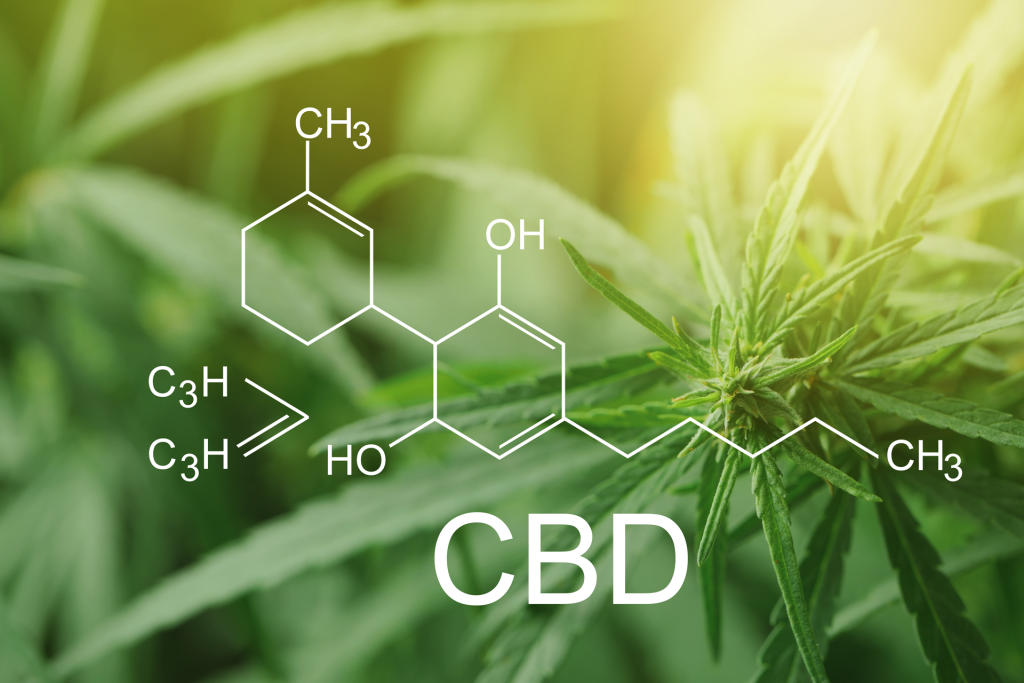
What is CBD?
The only federally legal use of natural CBD is as the active therapeutic substance in Epidiolex®, an FDA-approved pediatric antiepileptic drug.
CBD is federally prohibited as an ingredient in foods and dietary supplements, though it has been the subject of substantial clinical investigations. Under the Food Drug & Cosmetic (FD&C) Act, it is illegal to introduce drug ingredients, like CBD, into the food supply, or to market them as dietary supplements. In fact, the 2018 Farm Bill specifically highlights that it is unlawful under the FD&C Act to market a food or dietary supplement containing added CBD.
As of yet, it is not clear whether FDA will make a distinction between added CBD and native CBD in a hemp product. However, it is clear that the FDA will object to any food or dietary supplement product that:
- Identifies as being CBD
- Calls out its CBD content
- Has been processed to increase CBD content
- Is derived from a hemp strain specifically bred or selected for its greater CBD content
- Makes any claims about CBD effects
What is the U.S. FDA’s View on Hemp in Conventional Foods?
The 2018 Farm Bill explicitly preserved the FDA’s authority to regulate products containing cannabis or cannabis-derived compounds under the FD&C Act and section 351 of the Public Health Service Act (PHS Act).
The FDA treats products containing cannabis or cannabis-derived compounds as it does any other FDA-regulated products – meaning they’re subject to the same authorities and requirements as FDA-regulated products containing any other substance. This is true regardless of whether the cannabis or cannabis-derived compounds are classified as hemp under the 2018 Farm Bill.
FDA is clear on the substances it allows as an ingredient in conventional foods. The 1958 Food Additive Amendment to the FD&C Act says anything added to a food must be done so under an FDA-approved food additive regulation unless it is a Generally Recognized as Safe (GRAS) food ingredient. GRAS has two criteria:
- Are adequately shown through scientific procedures to be safe.
- Have recognition among experts qualified by scientific training and experience that criterion #1 has been met.
FDA is involved with GRAS assessments only to the extent that FDA hosts a voluntary GRAS Notification Database. The FDA reviews the notifications only to verify that they contain the information necessary to make a GRAS determination. The FDA does not endorse, approve, grant, or in any other way take any responsibility for a GRAS determination.
Currently there are three hemp food ingredients, all derived from cannabis seed, found in the FDA’s GRAS Notification Inventory:
- Hemp Seed Protein (GRN 771)
- Dehulled Hemp Seed (GRN 765)
- Hemp Seed Oil (GRN 778)
In some situations, a hemp product used as a dietary supplement will be a new dietary ingredient (NDI) that requires an NDI notification be submitted to the FDA 75 days prior to marketing.
What is the U.S. FDA’s View on Hemp in Dietary Supplements?
Dietary supplement ingredients are differentiated by whether they were marketed in the U.S. before the 1994 Dietary Supplement Health and Education Act (i.e., old dietary ingredients) or not marketed in the U.S. until after DSHEA (i.e., new dietary ingredients, aka NDIs). Manufacturers of NDI-containing dietary supplements require submission of a notification to the FDA 75 days prior to marketing the NDI-containing dietary supplement.
All Hemp-Derived Dietary Ingredients are Considered NDIs
At the time of DSHEA, all cannabis products were considered marijuana and thus illegal. Therefore, there were no lawfully marketed pre-DSHEA cannabis-derived dietary ingredients as of 1994, so all hemp-derived dietary ingredients are considered NDIs.
FDA has recently determined that it cannot verify the safety of CBD- and THC-containing substances as dietary ingredients for dietary supplements or as food ingredients via a GRAS submission despite numerous efforts in recent years to demonstrate their safety.
Can Botanical Substances Be Used in Dietary Supplements?
Botanical substances, such as hemp-derived ingredients, can be used in dietary supplements – with the exception of THC-containing products (prohibited under the Controlled Substances Act) and CBD (an FDA-approved drug). The FDA does not consider synthetic copies of hemp components to be lawful dietary ingredients because the synthetic version is not of botanical origin.
There is an exemption from the 75-day NDI notification requirement for dietary ingredients that are already in the food supply as conventional food ingredients. Thus, when a hemp-derived NDI is the same ingredient being used as a food ingredient (e.g., the GRAS hemp seed protein, hemp seed oil, and hulled hemp seed), submission to the FDA of a NDI notification is not necessary.
What is the FDA’s View on Hemp in Cosmetics and Personal Care Products?
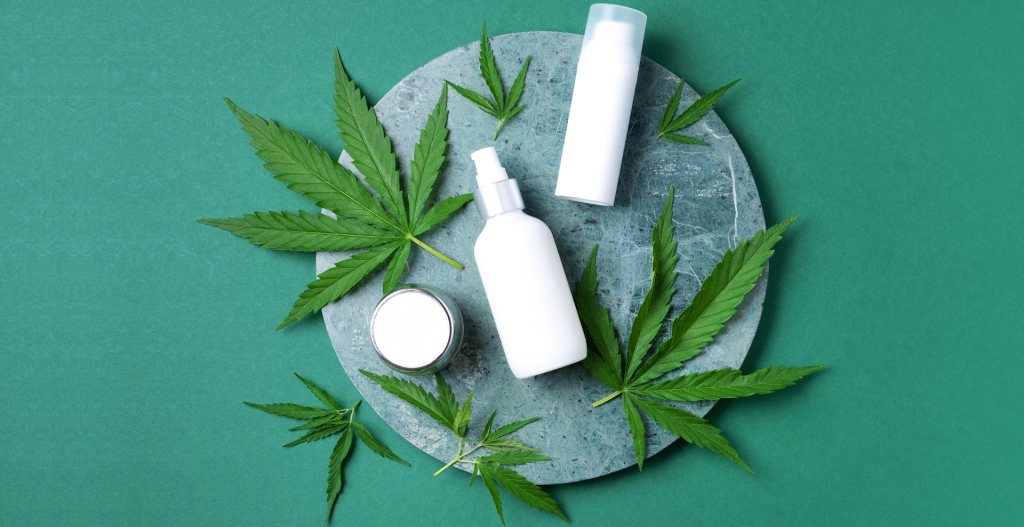
Cosmetics and personal care products sold in the U.S. do not require pre-market approval except for most color additives. Therefore, cannabis-derived ingredients may be used in cosmetics and personal care products without FDA pre-authorization.
It is important to note that FDA’s definition of cosmetics includes only those products used for “cleansing, beautifying, promoting attractiveness, or altering the appearance.” The use for any benefit to structure or function disqualifies the product for the cosmetic category and it becomes an Unapproved New Drug. The U.S. Modernization of Cosmetics Regulation Act (MoCRA), passed in 2023, introduces new safety considerations for cosmetics.
The FDA is clear that no ingredient – including a cannabis-derived ingredient – may be used if it causes the product to be adulterated or misbranded in any way. Products are considered adulterated when they contain poisonous or deleterious substances that may render them injurious to users under the conditions of use as prescribed in the labeling.
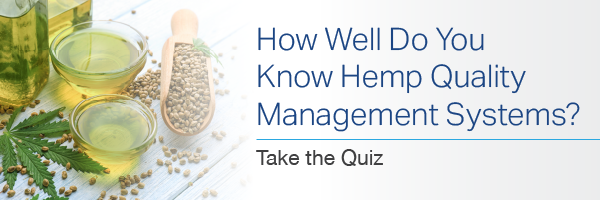
What About Full Spectrum Cannabinoid Extracts?
The FDA has not approved CBD or Full Spectrum Cannabinoid Extracts (which contain CBD along with other cannabinoids) for use in food or dietary supplements. The agency maintains that CBD is excluded from being added to these products due to its approval as a pharmaceutical ingredient in the drug Epidiolex. The FDA continues to express concerns about the safety and regulation of CBD in consumable products, citing insufficient scientific data on its long-term effects.
The FDA has not yet established a formal position on whether Full Spectrum Cannabinoid Extracts (which contain CBD) are subject to the same restrictions as CBD isolates. However, if the agency determines that such extracts are being used to bypass drug regulations, it could move to prohibit their use in food and dietary supplements on a federal level.
In short, while no formal ruling has been made, the FDA could take action if it views the inclusion of Full Spectrum Cannabinoid Extracts as a way to circumvent existing CBD regulations.
The U.S. Farm Bill – What’s on the Horizon?
The Farm Bill is updated about every five years, so what’s next? The 2024 iteration will be delayed due to the U.S. Federal election.
While it is too soon to say, there are a number of proposals being considered, from adjusting the allowable THC levels to laboratory requirements. Until then, manufacturers of hemp ingredients and products containing them must abide by federal and appropriate state laws to legally do business in the U.S.
Are you confident of the THC levels in your hemp products?
Certified Group companies provide manufacturers with fast, accurate hemp testing, including potency. Contact Labstat for hemp testing in Canada.
Contact Certified Laboratories for hemp testing in the United States.

